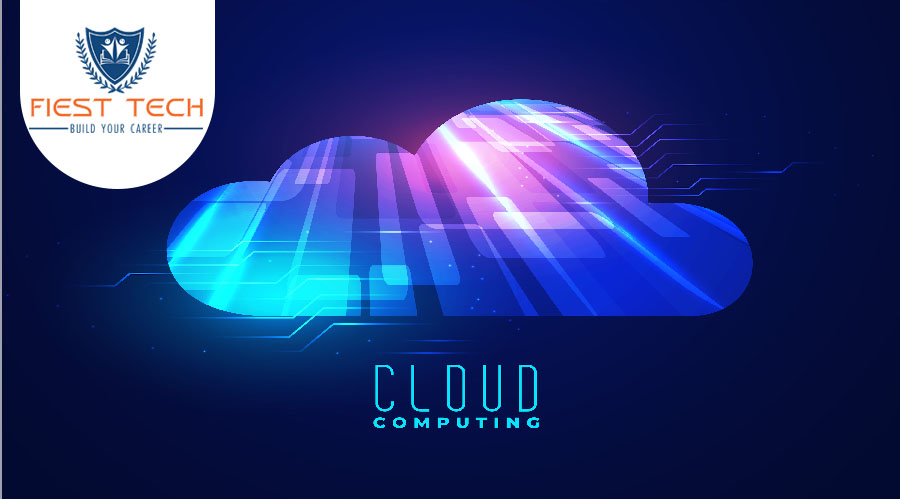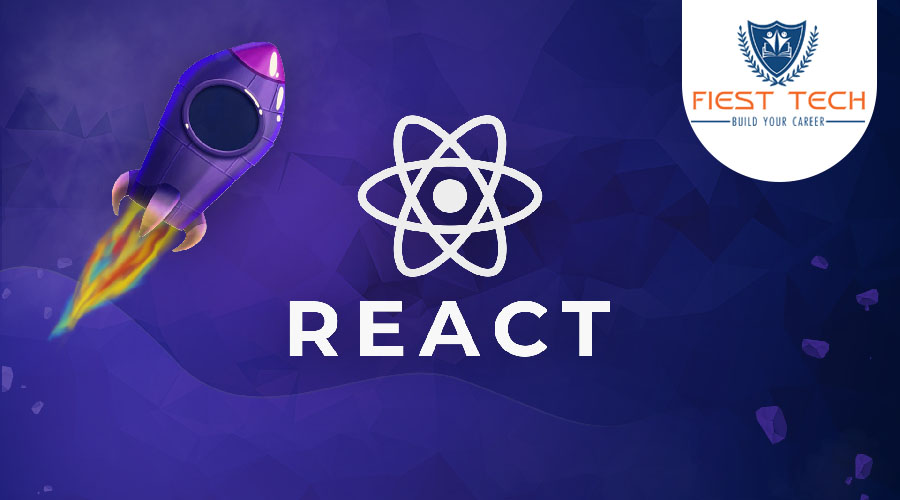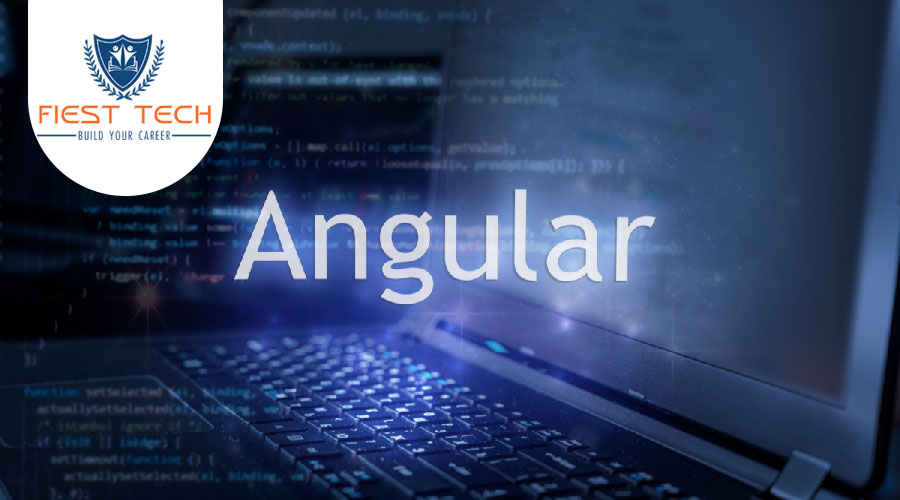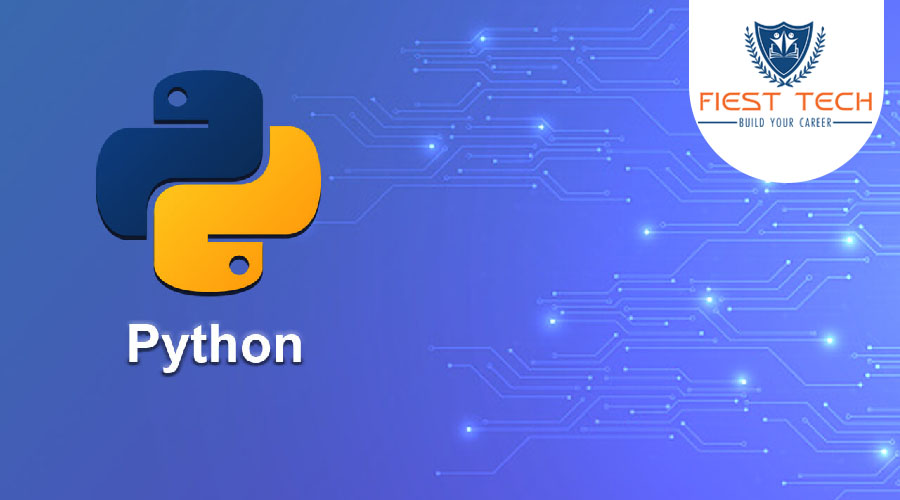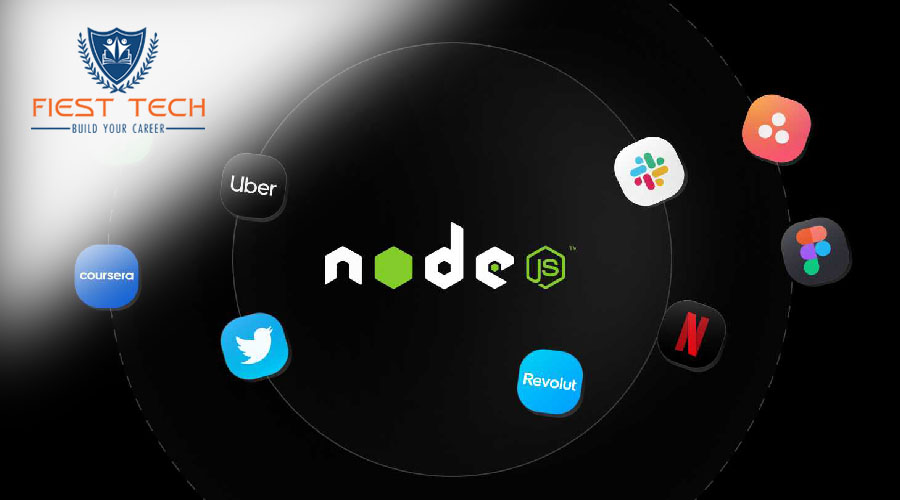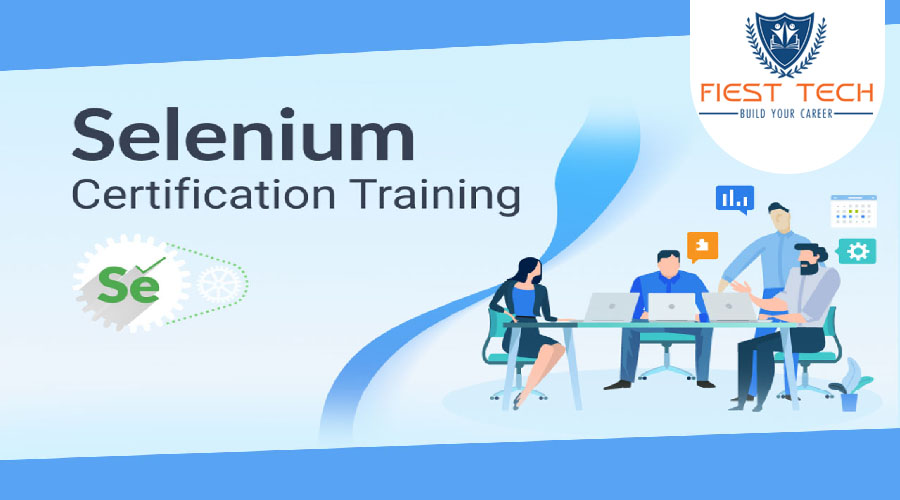Python Certification Course Overview
This Python Training course covers the fundamentals of Python and how to apply it to real-world applications. The modules, lesson-end projects, and assignments comprising the curriculum cover data operations in Python, strings, conditional statements, error handling, shell scripting, web scraping and the commonly used Python web framework Django.
Python, like any programming language, has its share of challenging topics that learners often encounter.
Python Development Training Key Features
At Fiesttech, we value the trust of our patrons immensely. But, if you feel that this Python Development Training does not meet your expectations, we offer a 7-day money-back guarantee. Just send us a refund request via email within 7 days of purchase and we will refund 100% of your payment, no questions asked!
- Web Development
- Data Analysis and Visualization
- Machine Learning and AI
- Scripting and Automation
- Database Connectivity
- Version Control
- Real-World Projects
Skills Covered
- Web scraping
- Objectoriented programming
- Operators
- Methods
- Django
- Indexing
- Sets
- Dictionaries
- Conditional statements
- Loops
- Functions
- File handling
- Errors and exceptions
- Shell scripting
Benefits
The StackOverflow’s developer survey of 2019 states that Python is the second most loved programming language in the world. Also, it is the most sought after programming language for Data Scientists, AI engineers, and Machine Learning engineers. Python developers earn around $115,000 per annum.
Annual Salary
Hiring Companies
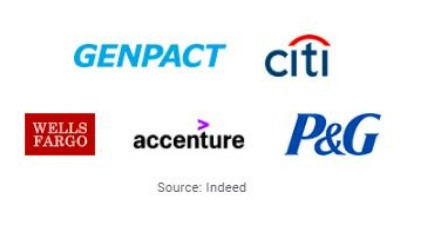
Annual Salary
Hiring Companies
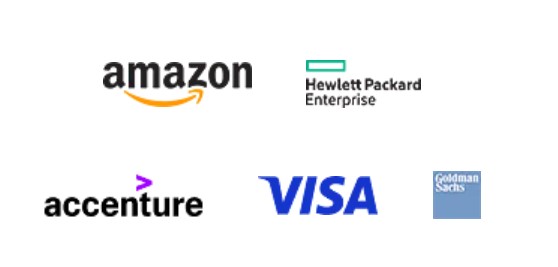
Annual Salary
Hiring Companies
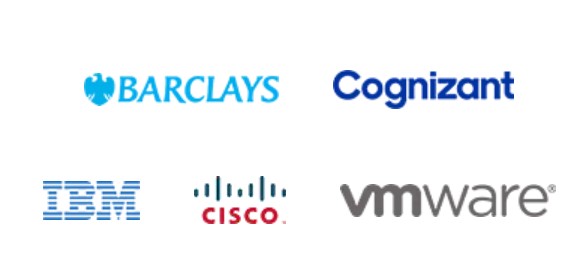
Annual Salary
Hiring Companies
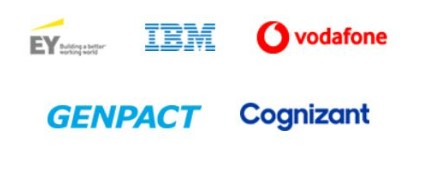
GO AT YOUR OWN PACE
Training Options
Explore all of our training options and pick your suitable ones to enroll and start learning with us! We ensure that you will never regret it!
Python Course Curriculum
Eligibility
- There are no strict eligibility criteria for learning Python, as it is suitable for individuals of various backgrounds and skill levels.
- Python is often taught to beginners, but it can also be valuable for experienced programmers looking to add a versatile language to their toolkit.
- Python training programs are open to individuals of all ages, educational backgrounds, and professional domains.
Pre-requisites
-
Basic Computer Skills: Familiarity with using a computer, navigating the file system, and working with software applications is essential.
-
No Prior Programming Knowledge Required: Python is beginner-friendly and can be learned without prior programming experience.
Course Content
Live Course
Self Paced
-
1.01 - Lesson 01: Python Basics
0 -
1.02 - Lesson 02: Data Operations
0 -
1.03 - Lesson 03: Conditional Statements and Functions
0 -
1.04 - Lesson 04: Error Handling and File Operations
0 -
1.05 - Lesson 05: Shell Scripting and Django
0 -
1.06 - Lesson 06: Logging Infrastructure
0 -
1.07 - Lesson 07: Unittest Infrastructure
0 -
1.08 - Lesson 08: Networking Concepts
0
-
2.01 - 1.1 Course Introduction
01:21 -
2.02 - 1.2 Learning Objectives
02:49 -
2.03 - 1.3 Introduction to Python and It s Features
08:22 -
2.04 - 1.4 Python Introduction - Uses and Flavours
06:22 -
2.05 - 1.5 Python Introduction - Why Python
00:55 -
2.06 - 1.6 Software Installation and Environment Setup
01:11 -
2.07 - 1.7 Demo: Software Installation and Environment setup
05:55 -
2.08 - 1.8 Data Types
08:44 -
2.09 - 1.9 Input Output Functions
01:43 -
2.10 - 1.10 Demo: Data Types and Input Output Functions
10:11 -
2.11 - 1.11 Key Takeaways
00:33
-
3.01 - 2.1 Learning Objectives
00:34 -
3.02 - 2.2 Data Type Conversion
04:34 -
3.03 - 2.3 Arithematic Operators
02:49 -
3.04 - 2.4 Comparision Operators
03:55 -
3.05 - 2.5 Assignment Operators
04:55 -
3.06 - 2.6 Bitwise Operators
01:49 -
3.07 - 2.7 Demo: Data Operations
00:49 -
3.08 - 2.8 String Methods
05:11 -
3.09 - 2.9 Demo: String Operations
05:33 -
3.10 - 2.10 List Methods
03:55 -
3.11 - 2.11 Demo: List Operations
02:11 -
3.12 - 2.12 Tuple Methods
03:11 -
3.13 - 2.13 Demo: Tuple Operations
01:11 -
3.14 - 2.14 Sets Methods
01:49 -
3.15 - 2.15 Dictionary Methods
01:49 -
3.16 - 2.16 Demo: Dictionary Operations
02:11 -
3.17 - 2.17 Key Takeaway
00:23
-
4.01 - 3.1 Learning Objective
00:20 -
4.02 - 3.2 Expressions
03:23 -
4.03 - 3.3 Conditional Statement
03:05 -
4.04 - 3.4 Demo - Conditional Statement
04:44 -
4.05 - 3.5 Loops - for loop
02:49 -
4.06 - 3.6 Loops - while loop
01:49 -
4.07 - 3.7 Demo - Loops
02:11 -
4.08 - 3.8 Functions
02:49 -
4.09 - 3.9 Demo - Functions
02:49 -
4.10 - 3.10 Key Takeaway
02:49
-
5.01 - 4.1 Learning Objective
00:24 -
5.02 - 4.2 File Handling
02:49 -
5.03 - 4.3 Demo - File Handling
04:22 -
5.04 - 4.4 Errors
04:56 -
5.05 - 4.5 Exceptions
05:22 -
5.06 - 4.6 Demo - Errors and Exceptions
05:56 -
5.07 - 4.7 Logging
06:11 -
5.08 - 4.8 Demo - Logging
04:54 -
5.09 - 4.9 Python Debugger(Pdb Module)
03:49 -
5.10 - 4.10 Demo - Python Debugger
04:54 -
5.11 - 4.11 Objects and Classes
04:44 -
5.12 - 4.12 Objects and functions
05:11 -
5.13 - 4.13 Demo - Object Oriented Programming
10:45 -
5.14 - 4.14 Key Takeaway
00:33
-
6.01 - 5.1 Learning Objective
02:49 -
6.02 - 5.2 Shell Scripting
02:49 -
6.03 - 5.3 Sys, OS and Sub-Process module
04:44 -
6.04 - 5.4 Reading Writing Files and Working with Date-time Module
01:49 -
6.05 - 5.5 Demo - Shell Scripting in Python
05:34 -
6.06 - 5.6 Web Scrapping
03:49 -
6.07 - 5.7 Demo - Web Scrapping using Beautiful Soup
01:49 -
6.08 - 5.8 Django - Intro and Architecture
05:34 -
6.09 - 5.9 Demo - Django Installation
07:43 -
6.10 - 5.10 Key Takeaway
02:49
-
7.01 - 6.01 Learning Objectives
02:49 -
7.02 - 6.02 Introduction to Python Logging
01:49 -
7.03 - 6.03 Concepts of Python Logging
04:12 -
7.04 - 6.04 Changing the Format of Logs
05:55 -
7.05 - 6.05 Python Logger
05:54 -
7.06 - 6.06 Using Python Logging
02:49 -
7.07 - 6.07 Logging Handlers and Formatters
02:49 -
7.08 - 6.08 Logging Flow
05:54 -
7.09 - 6.09 Configuring Logging
01:23 -
7.10 - 6.10 Extending Logging
02:49 -
7.11 - 6.11 Buffering Logs
00:49 -
7.12 - 6.12 Logging Best Practices
03:49 -
7.13 - 6.13 Rotating Log Files
01:49 -
7.14 - 6.14 Logging to a File
02:49 -
7.15 - 6.15 Summary
00:11
-
8.01 - 7.01 Learning Objective
02:49 -
8.02 - 7.02 Introduction to Unit Testing
05:49 -
8.03 - 7.03 Introduction to Unittest Framework
02:49 -
8.04 - 7.04 Concept of Unittest Framework
01:23 -
8.05 - 7.05 Command Line
02:49 -
8.06 - 7.06 Python Unittest
02:49 -
8.07 - 7.07 Using Python Unittest
06:43 -
8.08 - 7.08 Testing for Exceptions
03:49 -
8.09 - 7.09 Test Fixtures
02:49 -
8.10 - 7.10 Python Assertions
01:22 -
8.11 - 7.11 Classes and Functions
06:11 -
8.12 - 7.12 Pros and Cons
07:11 -
8.13 - 7.13 Mock object library
01:43 -
8.14 - 7.14 Summary
02:11
-
9.01 - 8.01 Learning Objective
00:31 -
9.02 - 8.02 Introduction to Python Networking
04:49 -
9.03 - 8.03 Sockets
03:11 -
9.04 - 8.04 Socket Programming
06:54 -
9.05 - 8.05 Working with Python Networking
06:11 -
9.06 - 8.06 Data Models
00:56 -
9.07 - 8.07 Building Client-Server Communication
06:11 -
9.08 - 8.08 Socket Types
02:11 -
9.09 - 8.09 TCP Sockets
04:22 -
9.10 - 8.10 The Tornado Frameworrk
06:11 -
9.11 - 8.11 Building a Python Chat Server
10:12 -
9.12 - 8.12 Summary
00:11

Python Development Training Exam & Certification
To obtain the Python certification, you must:
Complete 85 percent of the online self-learning course or attend 1 complete batch of this training
Successful evaluation in the project
You must have a computer with:
Chrome or Chromium browser
Strong internet access
Webcam
Microphone, speakers, and headset
A Python development training exam is an assessment that evaluates your knowledge and skills in Python programming. Upon passing the exam, you receive a certification that confirms your expertise in Python development.
- Python certifications can enhance your resume and credibility as a Python developer.
- They demonstrate your commitment to learning and improving your skills.
- Some employers require or prefer candidates with certifications.
- Certifications can open up career opportunities and potentially lead to higher salaries.
Some popular Python certifications include:
- Python Institute's PCAP (Certified Associate in Python Programming)
- Python Institute's PCPP (Certified Professional in Python Programming)
- Microsoft's Microsoft Certified: Python Developer Associate
- Oracle's Oracle Certified Associate, Java SE 11/Python Developer
- Google's Python for Data Science Certification
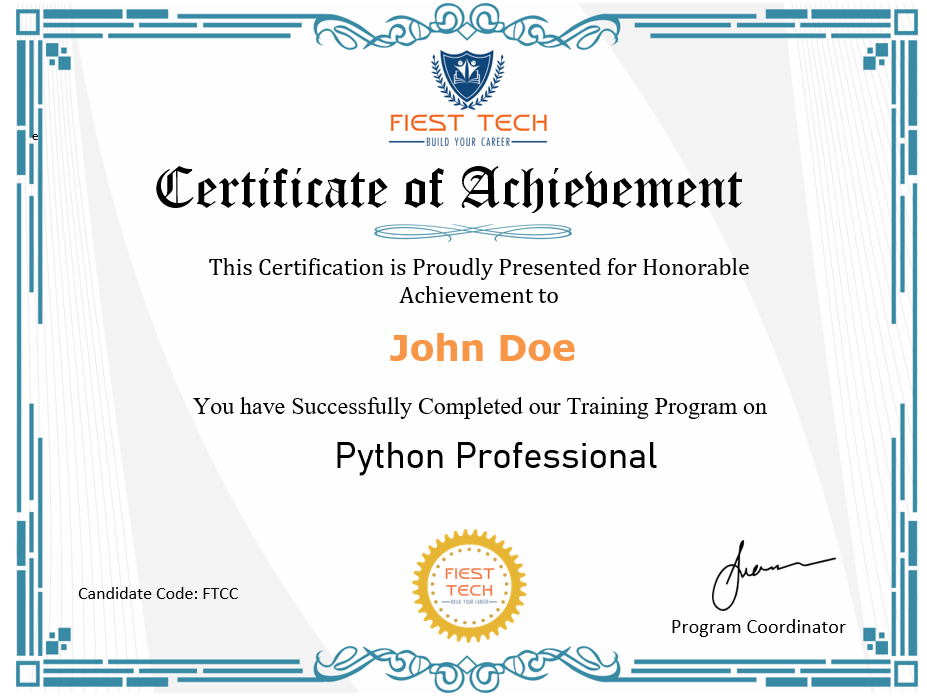
FAQS
Python Development Training Course FAQs
Python language has a simple syntax and English-like commands which makes it easy to learn. However, to become a Python programmer, you need a higher level of expertise and understand how to use it in a variety of applications. This Python course can help you get hands-on experience in using Python and its powerful libraries that is required to become a Python programmer.
Fiesttech’s Python training is offered by highly qualified trainers who have years of proven experience in Python programming and have worked on various industry projects. They also have rich experience in training students and giving them the best learning environment.
This Python certification course is ideal for professionals willing to become software developers or preparing for any data-related role like data scientist, data analyst, or AI engineer.
According to ZipRecruiter, the average annual salary of a Python Programmer in the United States is $115,066. By getting Python certified, such professionals can further increase their salary.
If you miss any session, you can refer to the recordings that are provided after each class.
Yes, we do provide Data Science with Python course for the aspirants who are looking to make their career in Data Science. It is recommended to enroll in this course to gain knowledge in data analysis, machine learning, data visualization, web scraping, and natural language processing.
Among the various programming languages available in the market, Python has made its way to become one of the fastest-growing languages. Python can be used for many applications like building web applications, game development, machine learning, scientific and numerical computing. Learning Python is beneficial whether you want to become a data scientist, machine learning engineer, data analyst, or even a software developer.
The key features of Python include:
- English-like commands and easy to learn.
- The language is open-source.
- A powerful set of libraries available for game development, data science, and more.
- Used to make Graphical User Interfaces (GUI).
- Dynamically-types language.
After deducing the administration fee, the remaining course fee will be refunded on canceling the enrollment. Please go through our Refund Policy to find out more.
Related Programs
Software Development Related Programs

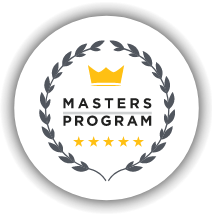
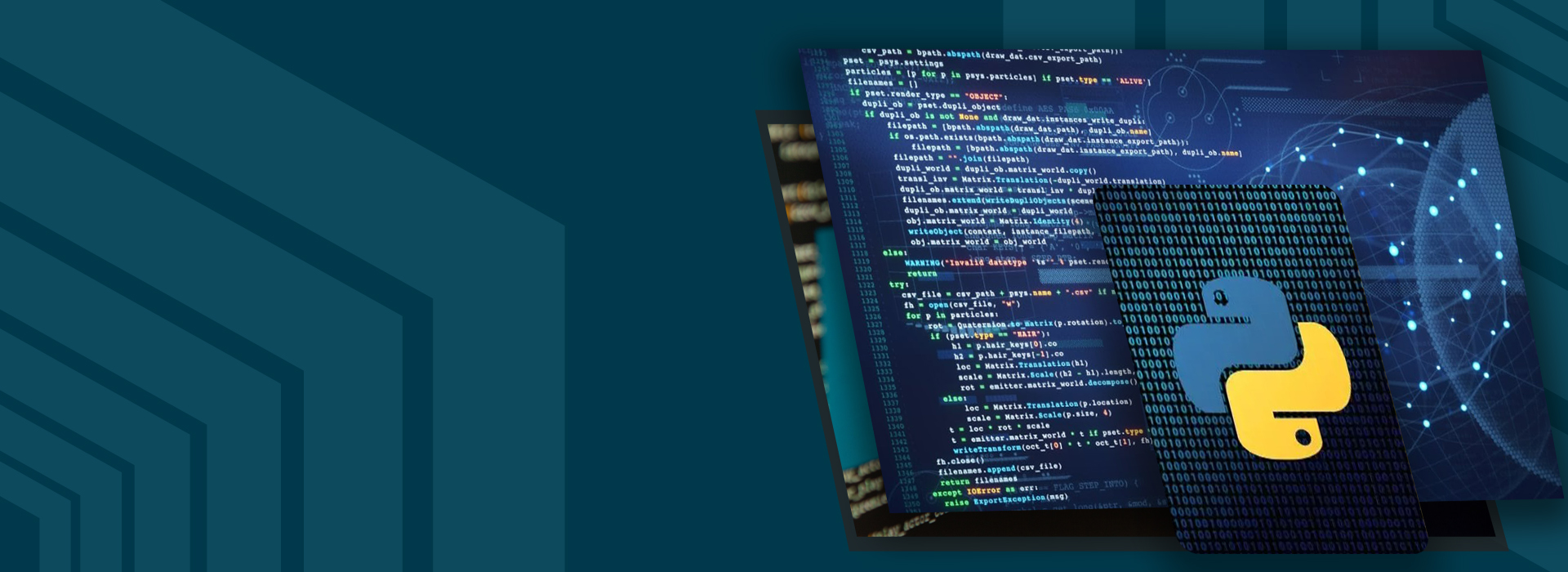
_Certification-Cloud_Computing.jpg)

